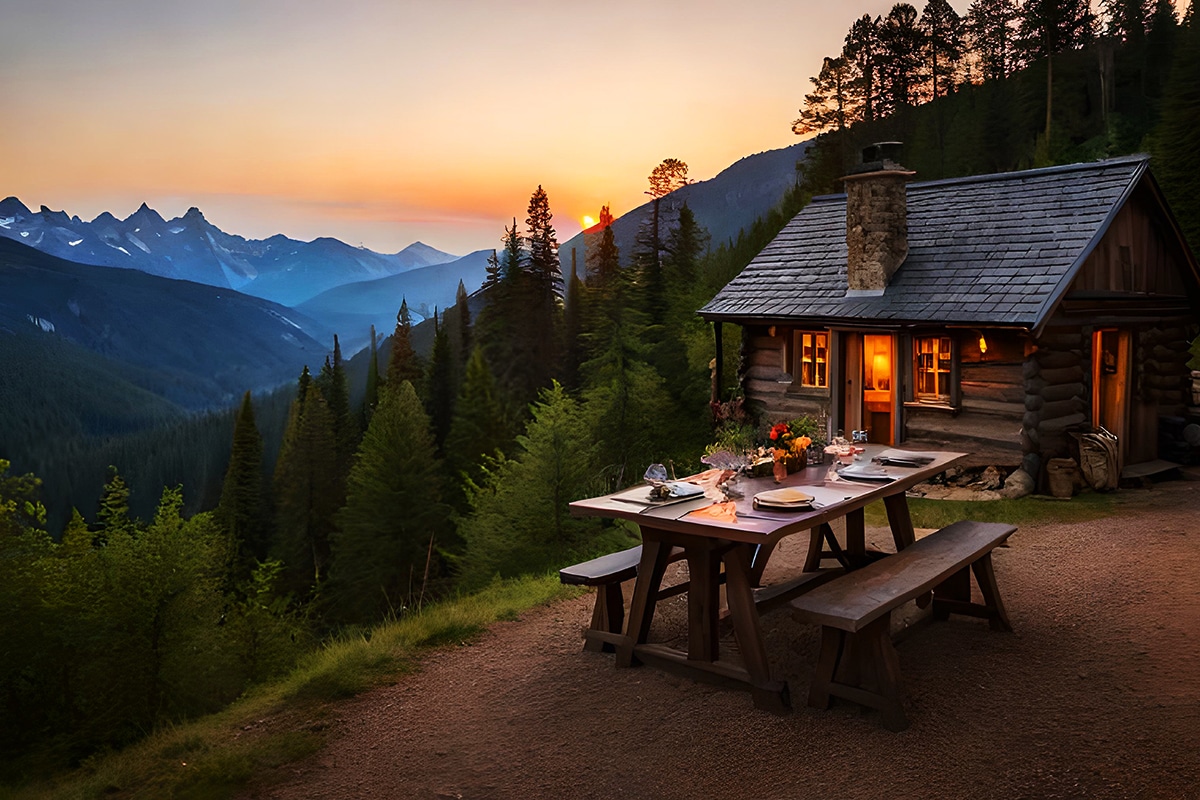In the modern-day, rural houses are gaining popularity as an attractive alternative to city or suburban living. More and more people are opting for country living, as rural houses offer numerous benefits that city apartments or suburban homes can’t match. From escaping the hustle and bustle of city life to experiencing the peace and serenity of nature, living in a rural house provides a unique living experience that is becoming more attractive to many.
The Benefits of Living in a Rural House
Living in a rural house comes with numerous benefits that can have a positive impact on your life. Here are some of the top benefits of rural living that are attracting more people to make the move to the countryside.
1. Peace and tranquillity
One of the most significant benefits of living in a rural house is the peace and tranquility that comes with it. Rural areas offer a peaceful environment with less noise pollution and fewer distractions. This is ideal for people looking to escape the hustle and bustle of city life and seeking a quieter, more relaxed lifestyle.
2. Increased privacy
Rural homes offer more privacy and personal space compared to living in a city or urban area. There are fewer people around, so you can enjoy a more intimate and private living experience.
3. Better quality of life
Numerous studies have shown that the stress levels and quality of life of people living in rural areas are generally better than those living in an urban area. The less crowded, more peaceful environment of rural living is beneficial to physical and mental health, leading to a better quality of life.
4. Affordable cost of living
Living in a rural area can be much more affordable compared to urban or suburban living. Rural homes usually have lower property prices and lower living costs, making it an ideal option for those looking to reduce their housing expenses.
5. Connection to nature
Rural living provides a deeper connection to nature. Living in a rural house allows you to be more in tune with the changing seasons, natural surroundings, and wildlife. This improves health and wellbeing, creating a more meaningful and fulfilling way of life.
Challenges of Rural Living
While rural living might seem like a dream come true, there are a few challenges that you might face. Before making the move to the countryside, it is essential to evaluate the challenges that come with rural living.
1. Limited job opportunities
One of the biggest challenges of rural living is limited job opportunities. Rural areas often have fewer employment options, with most jobs revolving around agriculture, forestry, or tourism. If you work in a specialized field, finding work in the countryside can be challenging.
2. Distance from amenities
Living in a rural area also means that you will be further away from essential amenities such as grocery stores, schools, hospitals, and entertainment options. This can be an issue, especially if you or your family have medical conditions that require regular specialist care.
3. Limited public transportation
Public transportation is often limited in rural areas, making it difficult to travel around or commute to work or school.
4. The cost of utilities
Utilities such as heating, electricity and water can be a higher cost in the countryside, especially if your home is not connected to the mains.
Making Rural Living Work for You
If the benefits of a rural lifestyle are appealing to you, there are a few things you can do to make rural living work for you.
1. Work remotely
More and more people are working remotely, making it easier to live in a rural area. With remote work becoming increasingly popular, you can work from home while enjoying all the benefits of living in a rural location.
2. Consider transport options
When living in a rural area, it is important to consider transport options. Owning a car or a bicycle can be great for getting around, while carpooling with neighbors can also be beneficial. If you don’t drive, you can consider public transport options like trains or buses.
3. Plan for potential issues
When living in a rural area, it is important to plan for potential issues that may arise, such as power outages or natural disasters. It is a good idea to have a backup power source and to stock up on food and supplies in case of an emergency.
4. Get involved in the community
Living in a rural area often means living within a small community. Getting involved in the community can help you feel more connected, and finding common interest and activities can help you make new friends.
Conclusion
Rural living is gaining popularity, and for a good reason. The peace and tranquility of rural life, coupled with a better quality of life and affordability, make it an attractive option for many people. While there are some challenges to living in a rural area, there are steps that you can take to overcome them. With careful planning, living in a rural area can provide a fulfilling and rewarding way of life.

Deja una respuesta